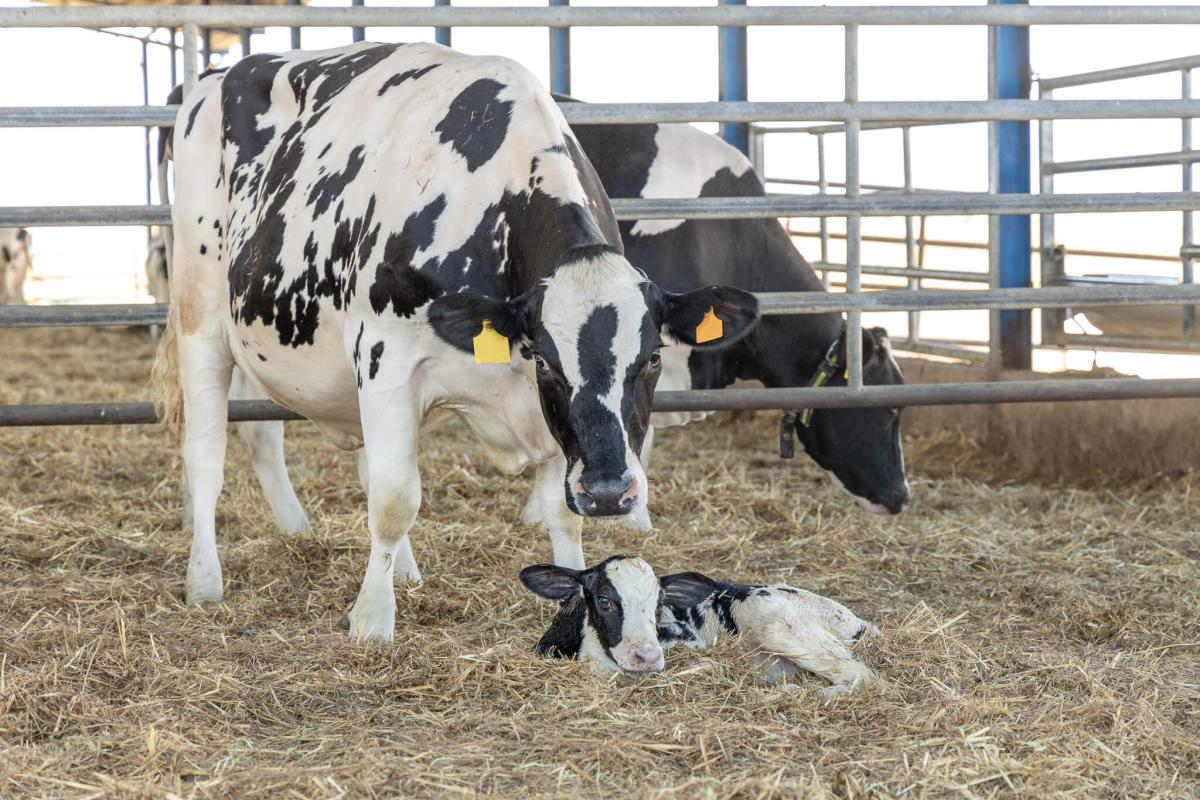
UK cattle producers are pretty much unanimous in the view that preventing disease in their youngstock will lead to better later life productivity. For example, when asked 99% of farmers either strongly agree (78%) or agree (21%) that prevention is the way forward1.
According to Dr Kat Baxter-Smith, veterinary adviser with MSD Animal Health, vets nationwide are working closely with youngstock rearers to help them review their calf scour management protocols prior to the peak winter disease period.
“By reviewing your colostrum management practices and assessing your calf rearing environment, you can highlight potential improvements to your system. And if frustrating scour problems in one-to-four-week-old calves are taking up too much of your time, then immunity-led disease management approaches should be considered,” she suggests.
Nearly three quarters of farmers (73%) see vaccination as a critical part of disease prevention for calf scours1. And dam vaccination to boost colostrum antibodies can certainly help you take control of infectious scour problems caused by cryptosporidiosis, rotavirus, coronavirus and E. coli F5 (K99).
“Infectious calf scours can be caused by different types of pathogens, including viruses (e.g. rotavirus and coronavirus), bacteria (e.g. E. coli F5 (K99) and Salmonella spp.) and parasites (e.g. cryptosporidia and coccidia). Unfortunately, all these pathogens are present in the UK farming environment and often scour outbreaks can be caused by a mix of different infectious disease-causing organisms2. Sometimes you can feel a little helpless when trying to manage calf scour issues, so please ask your vet for advice,” urges Dr Baxter-Smith.
Dr Baxter-Smith says that whatever the mix of infectious organisms implicated in any calf scour outbreak, there are now a wide range of vaccines and other effective disease management products available to help you improve the situation on farm.
Management of key viruses and bacteria
Vaccination of the calf’s mother with Bovilis® Rotavec® Corona between 12 and 3 weeks before calving boosts colostrum quality, helping you to feed high levels of antibodies against rotavirus, coronavirus and E. coli F5 (K99) in early life. Calves gain protection by drinking this fortified colostrum from their vaccinated mothers.
If a salmonella problem is diagnosed, dam vaccination with Bovilis® Bovivac® S will also induce appropriate colostral antibody production – this time against Salmonella dublin and Salmonella typhimurium. Bovilis® Bovivac® S may also contribute to reducing S. typhimurium contamination of the environment.
Management of cryptosporidiosis
Vaccinating pregnant heifers and cows with Bovilis Cryptium® can provide protection for calves from birth at the start of colostrum feeding – when they are most vulnerable. Active immunisation raises antibodies in colostrum against the protozoan parasite Cryptosporidium parvum, which will help to reduce clinical signs (e.g. scour/diarrhoea) when calves are fed this fortified colostrum.
The protection of calves depends on adequate ingestion of colostrum and transition milk from vaccinated cows. It is recommended that all calves are fed colostrum and transition milk during the first five days of life. At least three litres of colostrum should be fed within the first six hours after birth.
Bovilis Cryptium® can also be administered to cattle during late pregnancy at the same time as the Bovilis® Rotavec® Corona vaccine.
Management of coccidiosis
Alongside good hygiene practices, strategic use of anticoccidial treatments such as Vecoxan® will often be necessary to manage the challenge of coccidiosis in your calves – and, importantly, allow longer-term immunity to develop without loss of performance or disease.
Oral drenches are generally the most convenient way of ensuring that each calf receives the correct dose at the right time.
Easy-to-administer as a single oral dose, Vecoxan® is a flexible coccidiosis management tool that can be used in calves of any weight, in any management system and without any meat withdrawal period. In addition, its strategic use with all young animals in a group allows natural immunity to develop in your youngstock.
With such a mix of different infectious scour-causing organisms causing problems on UK calf rearing units, correct diagnosis will always be important. Please contact your vet to help you implement the most effective disease management approach for your farm.
- ends -
References:
- Herd Futures Survey (2021). MSD study ref: ABC2021HF
- APHA 2018 report https://www.gov.uk/government/statistics/veterinary-investigation-diagnosis-analysis-vida-report-2012
BOVILIS® ROTAVEC® CORONA contains inactivated rotavirus and coronavirus and E. coli F5 (K99) antigens.
POM-VPS. BOVILIS® BOVIVAC® S contains formalin killed cells of Salmonella dublin strain S342/70 1 x 109 cells/ml and Salmonella typhimurium strain S341/70 1 x 109 cells/ml. POM-V.
BOVILIS CRYPTIUM® contains Cryptosporidium parvum Gp40. POM-V.
VECOXAN® contains diclazuril 2.5mg/ml. POM-VPS.
Further information is available from the respective SPC, datasheet or package leaflets. MSD Animal Health UK Limited. Registered office: Walton Manor, Walton, Milton Keynes MK7 7AJ. Registered in England & Wales no. 946942. Advice should be sought from the medicine prescriber.
Prescription decisions are for the person issuing the prescription alone.
Use Medicines Responsibly.
© 2025 MSD Animal Health UK Limited. All Rights Reserved.
UK-NON-250800005
